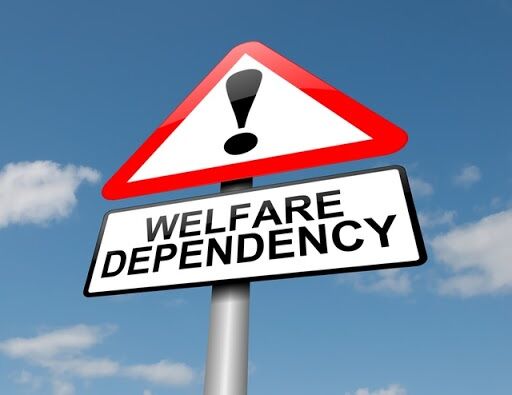
POLICIES that are bad for the economy are usually popular among voters, and therefore among politicians. Hence, throughout human history, in many countries and jurisdictions around the world, economic problems persist, and governments struggle with strained finances.
In November 2023 in Argentina, a majority of voters elected a “fiery” economist for president, Javier Milei, who brandished a chainsaw while promising to reduce the size of government and pursue free market policies. Pundits said Argentineans were so desperate for change after decades of big government and economic stagnation that they decided to cast their lot with someone who was called “El Loco” (The Madman) by his schoolmates.
Shortly after he was inaugurated in December 2023, Milei imposed an immediate 5% cut in government spending. He pledged not to raise taxes. Moreover, as Jon Miltimore of the Foundation for Economic Education has reported: “Public work programs were put on hold, welfare programs were slashed, and subsidies were eliminated. State-owned companies were privatized and hundreds of regulations were cut. Tax codes were simplified and levies on exports were lifted or reduced. Labor laws were relaxed. The number of government ministries was reduced from 18 to 9…and a job freeze was implemented on federal positions. Tens of thousands of public employees were given pink slips. On the monetary side, the currency was sharply devalued and the central bank was ordered to halt its money-printing.”
Miltimore said these actions were not painless. “Indeed, Milei himself had described them as a kind of ‘shock’ therapy that was necessary for economic healing. Argentina was battling triple-digit inflation, economic sclerosis, and mass poverty.”
One year later, inflation, “which had peaked at an annualized rate of 300 percent in April, nosedived, reaching a four-year low in November. In his first month in office, the Associated Foreign Press reports, Milei oversaw a record 25.5 percent inflation rate. By November, inflation had fallen to 2.4 percent. ‘In just 12 months we pulverized inflation,’ the Economy Ministry wrote on X. Meanwhile, Argentina’s economy officially exited recession. GDP grew nearly four percent in the July-to-September quarter after a sluggish first half, and the International Monetary Fund forecasts growth of five percent in 2025 and 2026. [T]here is [now] a strong likelihood of foreign investment, as evidenced by the JP Morgan ‘country risk index.’ ” Milei also scrapped rent control. Result? Rental unit supply increased by over 170% and real rental prices dropped by 40%.
As the left would put it, the “root cause” of Argentina’s unholy economic mess is big-government populism, which is known there as “Peronism.” Based on the ideas of the late strongman Juan Peron (now better known as the husband of Evita Peron), Peronism stands for policies that are wildly popular — and fiscally irresponsible. These include relentless government intervention in the economy, protectionism, income redistribution, entitlement programs, price controls, a rise in government employment — and spending.
Like many other “compassionate” ideals, Peronism, which is essentially Statism, is premised on the very old notion that government ought to do something for society’s unfortunate members — and never mind the actual track record, since ancient times, of governments that set out to improve the lives of their citizens through vigorous government action. Many statists have not one but two blind spots: history and economics. Their grasp of history, more often than not, is hazy, and their view of economics is mostly cartoonish — one they interpret as a moral drama with villains and victims.
There is, in any case, nothing new about politicians promising voters something for basically nothing.
In ancient Rome, for example, the government abolished interest, dispensed government-subsidized wheat to the public, and offered low-cost loans to farmers. It also invested heavily in public works, extended social welfare to military veterans, and gave aid to poor families and children.
Result? According to economics writer Henry Hazlitt, the “dole became an integral part of the whole complex of economic causes that brought the eventual collapse of Roman civilization….” To fund the government’s extravagance, the rulers of Rome raised taxes, which eventually destroyed the sources of revenue. Inflation, price controls and economic collapse soon followed. As for the poor who were supposed to benefit from their government’s boundless generosity (with other people’s money), they became “more numerous and worse off than they were before, not only because they [had] lost self-reliance, but because the sources of wealth and production on which they depended for either doles or jobs [were] diminished or destroyed.”
In his outstanding book, “The Conquest of Poverty,” published in 1973, Hazlitt noted that, “One would get the impression, reading most of the discussions in today’s American newspapers and magazines, that no one had ever thought of doing anything for the poor until Franklin Roosevelt’s New Deal in the 1930s, or even until President Johnson’s War on Poverty in the 1960s. Yet private charity is as old as mankind; and the history of governmental poor relief, even if we ignore the ancient world, can be traced back more than four centuries.” He was referring to the poor laws of England, the first of which was enacted in 1536. Soon, it became evident that “persons once receiving…relief refuses ever to work….” A government report issued in 1832 acknowledged that “Every penny bestowed, that tends to render the condition of the pauper more eligible than that of the independent laborer, is a bounty on indolence and vice…. We do not believe that a country in which…every man, whatever his conduct or his character [is] ensured a comfortable subsistence, can retain its prosperity, or even its civilization.”
In his message to the U.S. Congress in 1935, President Franklin D. Roosevelt said: “The Federal Government must and shall quit this business of relief…. Continued dependence upon relief induces a spiritual and moral disintegration, fundamentally destructive to the national fiber.”
Ninety years later, a generous welfare state remains the aspiration of many governments — and electorates — around the world.
Why? Because, to paraphrase an American sit-com character, many of us are good-hearted persons who can’t do simple math.
Send feedback to editor@mvariety.com










